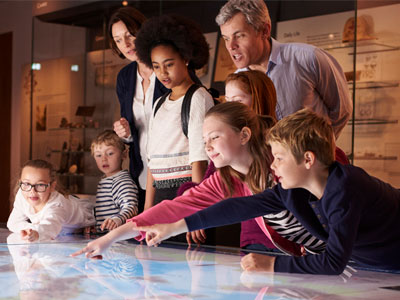In a world that is becoming increasingly diverse, community organizations play a crucial role in fostering cultural education and awareness among young children. By providing valuable insights and practical tips, community organizations can contribute to building a more inclusive and understanding society. First step in this endeavor is to start by creating awareness about the importance of cultural diversity. Organize workshops or seminars to educate members and the community about different cultures, traditions, and histories. Recognize and celebrate cultural awareness months throughout the year. Plan events, workshops, and activities specific to the cultural theme of each month. Some key items to consider when actively elevating cultural education include:
Collaboration and Partnerships. Foster collaborations with local cultural groups, artists, and educators. Partner with schools and libraries to extend the reach of cultural education programs. Encourage community members to actively participate as volunteers. Foster a sense of community ownership in cultural education initiatives.

Interactive Cultural Events. Organize cultural events and festivals that involve interactive activities. Encourage children to participate in hands-on experiences such as traditional art, music, and dance. Incorporate storytelling and literature by establishing a library or reading program that focuses on diverse cultural literature. Host storytelling sessions featuring stories from various cultures. At cultural events, explore the culinary aspect of a culture by engaging children in cooking or tasting traditional foods. Learning about food can be a gateway to understanding cultural practices and traditions. Participating in such events provides a sensory-rich experience and exposes children to various cultural practices.
Language Learning Initiatives. Introduce language-learning programs to expose children to different languages. Collaborate with language experts or native speakers for interactive language sessions. Learning a language within its cultural context enhances understanding and appreciation.
Immersive and Experiential Learning. Organize field trips to museums, cultural centers, or heritage sites. Connect cultural education with nature exploration by exploring outdoor spaces with cultural significance. Facilitate experiential learning opportunities to make cultural education more tangible. These hands-on activities allow children to actively engage with different aspects of a culture.
While specific community organizations may vary based on location, you can explore local resources and networks to find specific organizations in your area. Many cities have cultural centers dedicated to promoting and preserving the heritage of specific communities. These centers often offer educational programs for children. Children's museums or cultural museums hold vast number of educational programs that focus on introducing kids to different cultures through exhibits, workshops, and interactive activities. Public libraries often organize cultural events, storytelling sessions, and reading programs that expose children to diverse literature and traditions. After-school programs that integrate cultural education into their curriculum can be valuable resources for children to learn about different traditions. This includes offering an after-school club for learning another language.
Local community outreach programs or initiatives by non-profit organizations may include cultural education as part of their efforts to enrich the community. Remember to check with local community centers, educational institutions, and online platforms to discover specific organizations in your area that align with your interest in cultural education for children. Additionally, local government agencies may have resources or information on community programs promoting cultural awareness and education.
Community organizations hold the power to shape the cultural education landscape for young children. By implementing these valuable insights and practical tips, these organizations can create a positive impact on the future generation, fostering a society that appreciates, understands, and celebrates diversity. Through collaborative efforts and a commitment to cultural education, community organizations can play a pivotal role in building a more inclusive and harmonious community.

Help support the development and creation of the cultural education curriculum by making a tax-deductible donation.
Make a Donation